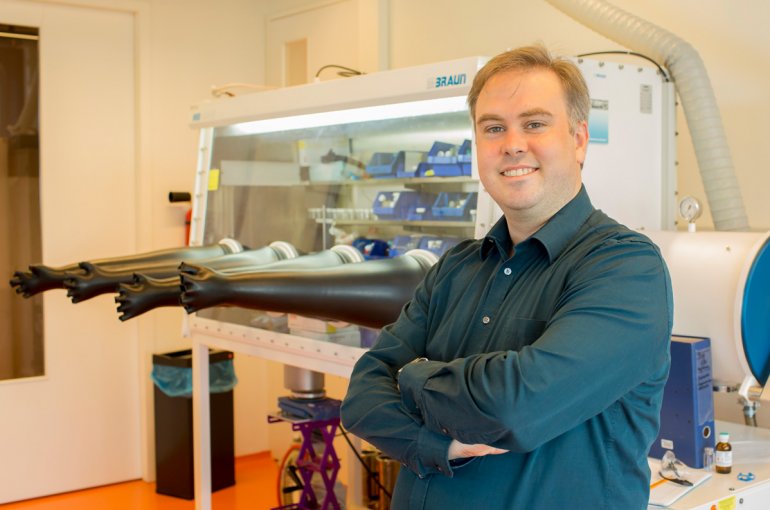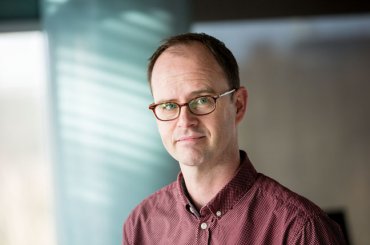“Surprises are always possible when you’re working in a chemistry lab”
Marc-Etienne Moret talks about his ERC Starting Grant

Chemistry researcher Marc-Etienne Moret has been awarded a 1.5 Million Euro ERC Starting Grant to study new catalysts with better properties. “Lots of catalytic reactions require precious metals,” Moret explains. “Those metals are not only rare and expensive, but they are also often toxic. In this research project, I want to develop new catalysts based on different types of metals.”
“Take palladium, for example, which is used in catalytic reactions to make drugs,” Moret continues. “It works really well, but after the catalytic reaction, you need to sanitise the drug very well to make it usable for humans.” In his ERC project, Moret will work with metals like iron, cobalt, and nickel. “Iron, for example, is very cheap and non-toxic. But from a chemical point of view, these metals are not very well-behaved. That means we have to help them a bit to make them useful.”
Helping a catalyst
So, how do you help a catalyst? Moret explains: “Typically, a molecular catalyst is one metal atom surrounded by an organic part, the ligand. This organic part allows us to finetune the behaviour of the catalyst. Traditionally, ligands are only used as support for the metal. But I am interested in developing cooperative ligands, which are also involved in the catalytic activity. That might enable us to use different metals in catalysis. To reach this goal, I will study new types of ligands, that bind to the metal in a different way.”
Making new molecules
The ERC grant allows Moret to hire two PhD candidates and two Postdocs. The first step of the project involves making new molecules. “That's something I really like about chemistry,” Moret says. “If you want to study things, you start by making them first.” When the molecules are made, the researchers will involve them in chemical reactions, which they will study at a molecular level using spectroscopy. “We want to know: do these molecules react? And if so, what is the result? Then, it’s time to test them as catalysts. If we fully understand their catalytic processes, we might be able to improve their behaviour even more.”
Unexpected discoveries
Moret’s research group is mostly an experimental group, but computer models are also used to support the lab work. “We try to predict the reactions with computer simulations of the molecules, to see whether our ideas are realistic,” Moret says. “But we need the experiments as well, because there are so many possible reactions that it’s impossible to predict them all. That also means that there is always a possibility of new discoveries. Working with new molecules always opens up opportunities for unexpected chemical reactions. In reality, that's how a lot of breakthroughs happen. We’re not yet at the stage where we understand everything well enough to predict those discoveries, which is one of the things that make science exciting. Surprises are always possible when you’re working in a chemistry lab.”
Related news

Utrecht leads European research into a new generation of catalysts
The European Union has set aside 3.3 million Euros for research into the development of cheaper and more sustainable catalysts for uses such as the clean production of fuels.

